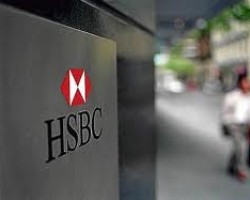
IN THE DISTRICT COURT OF APPEAL OF THE STATE OF FLORIDA
FIFTH DISTRICT JANUARY TERM 2012
GARY C. RICHARDS,
Appellant,
v. Case No. 5D10-3895
HSBC BANK USA AS TRUSTEE FOR
PHH 2007-2,
Appellee.
________________________________/
Opinion filed June 22, 2012
Appeal from the Circuit Court
for Citrus County,
Carol Falvey, Judge.
Gary C. Richards, Gainesville, pro se.
Jeffrey M. Gano, of Florida Default Law
Group, P.L., Tampa, for Appellee.
EVANDER, J.
Richards appeals the entry of a final summary judgment of mortgage foreclosure.
Because a material disputed issue of fact remained as to whether HSBC was the holder
of the note, we reverse.
The proper party with standing to foreclose a note and mortgage is the holder of
the note and mortgage or the holder’s representative. See Gee v. U.S. Bank Nat’l
Ass’n, 72 So. 3d 211, 213 (Fla. 5th DCA 2011). Thus, the party seeking foreclosure
must present evidence that it holds the note and mortgage in question in order to
proceed with its foreclosure action. Id. A plaintiff must tender the original promissory
note to the trial court or seek to reestablish the note under section 673.3091, Florida
Statutes (2010). Id. If the note does not name the plaintiff as the payee, the note must
bear an endorsement in favor of the plaintiff or a blank endorsement. Id. Alternatively,
the plaintiff may submit evidence of an assignment from the payee to the plaintiff or an
affidavit of ownership to prove its status as a holder of the note. Id.
This court reviews an order granting summary judgment de novo. Volusia
County v. Aberdeen at Ormond Beach, L.P., 760 So. 2d 126, 130 (Fla. 2000).
Summary judgment is appropriate where there is no genuine issue of material fact and
the movant is entitled to a judgment as a matter of law. Id. When reviewing a final
summary judgment, an appellate court must examine the record in the light most
favorable to the non-moving party. Gee, 72 So. 3d at 213.
In the instant case, HSBC filed an unverified complaint alleging that it owned and
held the note and mortgage. However, the copy of the note and mortgage attached to
the complaint reflected that Richards had executed the note and mortgage in favor of
Century 21 Mortgage. Throughout the proceedings below, Richards challenged the
right of HSBC to bring its foreclosure action.
Ultimately, in support of its motion for summary judgment, HSBC filed the original
note, an assignment of mortgage, and affidavits setting forth “amounts due and owing.”
However, these documents failed to establish, as a matter of law, that HSBC was the
holder of the note.
While the assignment reflected that the mortgage had been assigned from
Century 21 to HSBC, the allonge to the note reflected that Bishops Gate Residential
Mortgage Trust was to be the note’s payee. Specifically, the undated allonge set forth
the following language:
Without Recourse
Pay to the order of: * Bishops Gate Residential
Mortgage Trust
Thus, the allonge was inconsistent with the assignment and contradicted the allegation
in the complaint that HSBC was the holder of the note. See Khan v. Bank of America,
N.A., 58 So. 3d 927, 928 (Fla. 5th DCA 2011) (“Because the exhibit to Bank of
America’s amended complaint conflicts with its allegations concerning standing, Bank of
America did not establish that it had standing to foreclose the mortgage as a matter of
law.”)
Furthermore, the affidavits filed by HSBC did not explain the relationship
between HSBC and Bishops Gate Residential Mortgage Trust, nor otherwise aver facts
conclusively showing that HSBC was the holder of the note.
REVERSED and REMANDED.
SAWAYA and LAWSON, JJ., concur.
© 2010-19 FORECLOSURE FRAUD | by DinSFLA. All rights reserved.




Who’s Gary C. Richards? Buddy, my hat’s off to you–good job. And Florida Default’s affidavits are always squirrel-y–you’ll have a field day. I hope they’ve painted themselves into a corner from which there is no escape!
Go, Gary!!